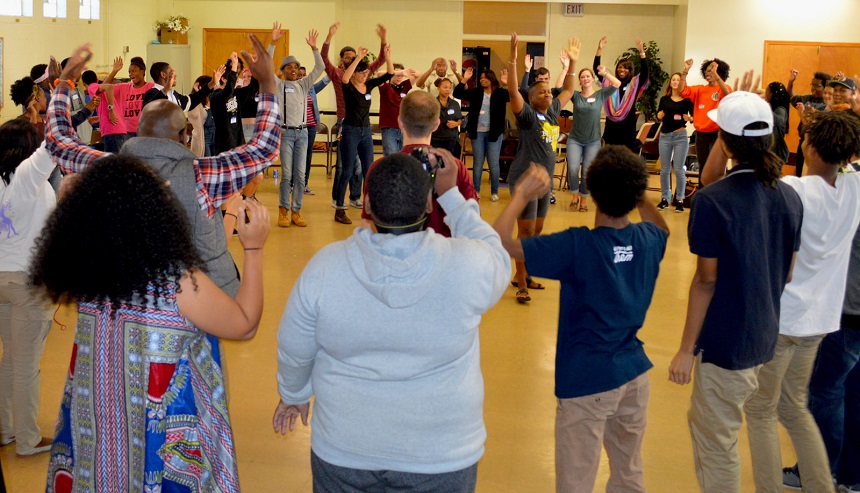
YUIR training in Pittsburgh Traisaun Leake
On Sunday, May 1, 2016, I attended the final day of the Youth Undoing Institutional Racism (YUIR) weekend in Pittsburgh, PA. I had attended two previous YUIR weekend events, one for youth in October of 2015 and one for adults in March of 2016.
YUIR is a national peace and racial justice program for youth, jointly sponsored by the AFSC and the People's Institute for Survival and Beyond. Over the years, YUIR in Pittsburgh has worked on issues such as school funding, raising the minimum wage, police brutality and police/youth relationships in the community, and the school-to-prison pipeline, as well as academic and discipline disparities in Pittsburgh Public Schools.
They are also part of a coalition of youth groups in Pittsburgh called the Pittsburgh Student Activist Coalition which advocates for various community and civic issues affecting youth quality of life in Pittsburgh (policing, recreational facilities, housing, etc.).
YUIR had its first weekend program for youth in October of 2015. It was a great success. We had only planned for 50 youth; but so many signed up that we had to hire more trainers from the People's Institute and turn some people away, promising to hold another program in the spring, thus our program on April 29 through May 1, 2016.
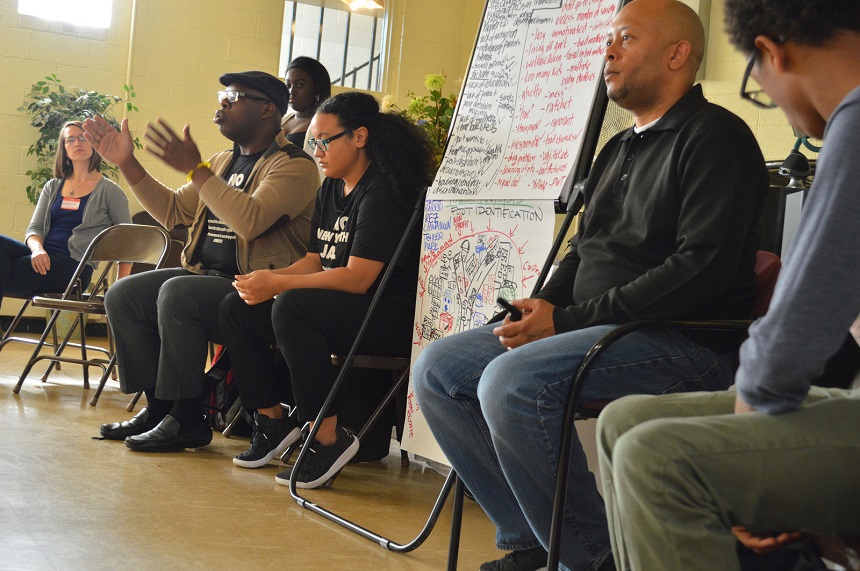
About 15 years ago, after receiving a lot of accolades from a famous local playwright, a publisher, and an English professor at the University of Pittsburgh for writing a Star Trek screenplay, I decided to try writing a screenplay of my own, as they suggested. I started to write a play about two interracial couples living 200 years into the future. In one couple, both partners are historians while the other couple consists of a historian and a scientist who has invented a time machine. At this point in the future, all forms of racism have finally been abolished and American society has really become a society of equality and justice for everyone.
All four characters have a strong interest in the history of slavery and racism in the United States. They decide to use the time machine to travel back into the South approximately a decade before the Civil War. In preparation for writing the play, I spent a year researching life for Blacks and whites during slavery. Because I had to take over the care of my infant niece and my deceased sister’s four youngest children, I never got to finish my play.
But my research did not go to waste because I had an eye-opening education about the development of both slavery and racism in this country, as well as being made aware of how revisionist and inadequate the teaching of American history has been in our schools.
Over the years, I have periodically fantasized about developing a history course that would give all American students the real history of slavery and racism in this country, thinking that such a course would be a major force to help combat racism. But I am not a history teacher and have been busy raising five nieces and nephews, so it seemed like an overwhelming task. So it was with great satisfaction that I discovered that The People's Institute and AFSC have developed just such a program to teach this history.
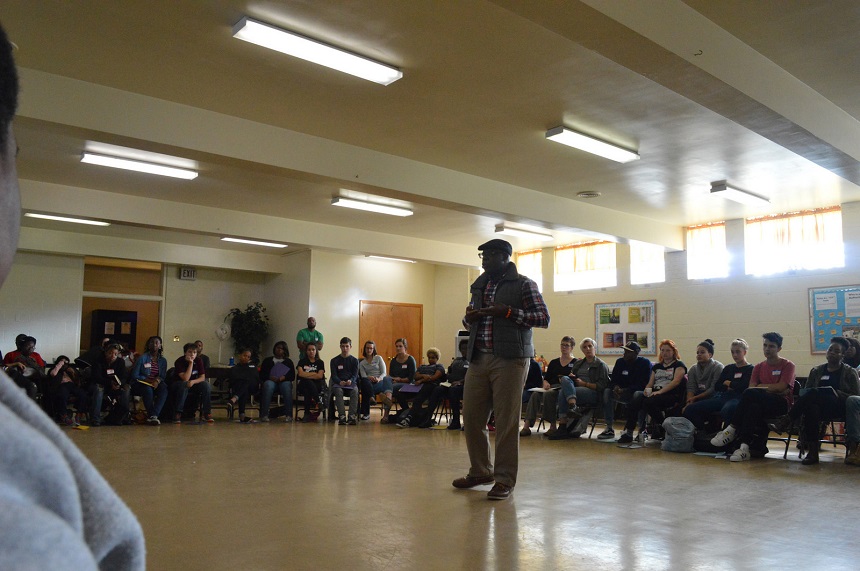
On the weekend of April 29 through May 1, YUIR brought the People's Institute for the third time to do a workshop for youth in Pittsburgh. The staff from the People's Institute had an excellent program, as usual, that really seemed to hit home with the youth and inspire them to think.
They presented the history of the development of the pseudoscience of race and made a convincing case of how it developed to justify colonialism, imperialism, and slavery and how it was further used in the American colonies to divide and conquer Black slaves and white indentured servants who were brought over by the wealthy classes to work for them.
They then proceeded to make a convincing case of how these racist presumptions have pervaded all societal institutions and functions to the present day in order to not only keep people of color oppressed (especially African Americans, Native Americans, and Latinos) but also to keep the class division in place to further the interests of the upper class and maintain their power.
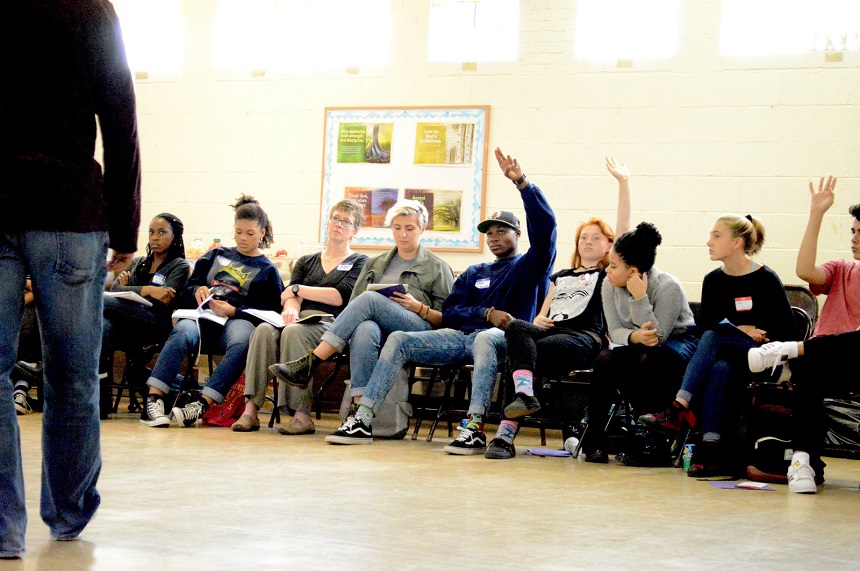
They made their presentation relevant to the very issues going on in the lives of today’s youth – police brutality, difficulty paying for higher education, poor public education, poverty, lack of hope for a better life, the school-to-prison pipeline, lack of access to affordable, quality health care, etc.
The youth who attended from all demographic groups seemed enthusiastic about the event going into it and very impressed coming out of it. During breaks and lunch they had animated discussions among themselves and with me and other adults about the concepts raised in the presentations and the connections with their own life experiences. I know of at least one girl who was so impressed that she went on to attend the next weekly YUIR meeting.
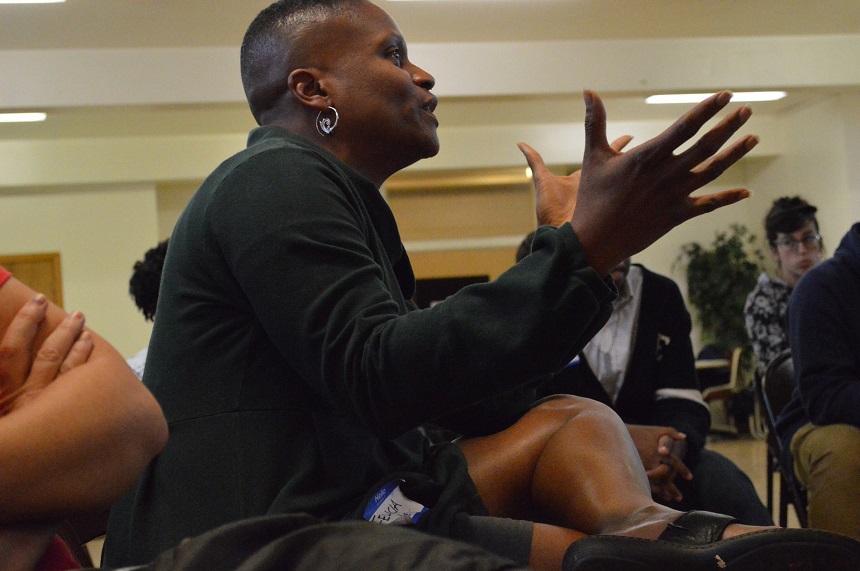
One of the participants, who was Black, exclaimed to me, "We don't get this kind of education in school. I wish we did. It would help us connect better with our educational system and understand better why the world doesn't seem to be working for us.” This young man said that although he had signed up for the summit, he decided at the last minute to actually attend and was very glad he did. He expressed interest in attending YUIR weekly meetings and was going to try to motivate some of his friends to get involved.
Another participant, who was white, told me he had come because he was just trying to understand race relations in the U.S. and his role in them. He felt this event was a good start in his education, and it gave him a lot to think about. Most of the youth involved expressed an interest in getting further involved with YUIR.
Part of the reason racism is so entrenched in our society is that we have never honestly owned it and dealt with it as a whole society. From the responses of the youth who attended this weekend, I think this might be a way to get American youth of all races and ethnicities to start owning and confronting that legacy of racism. Maybe we won't need a time machine to go back into the past after all!
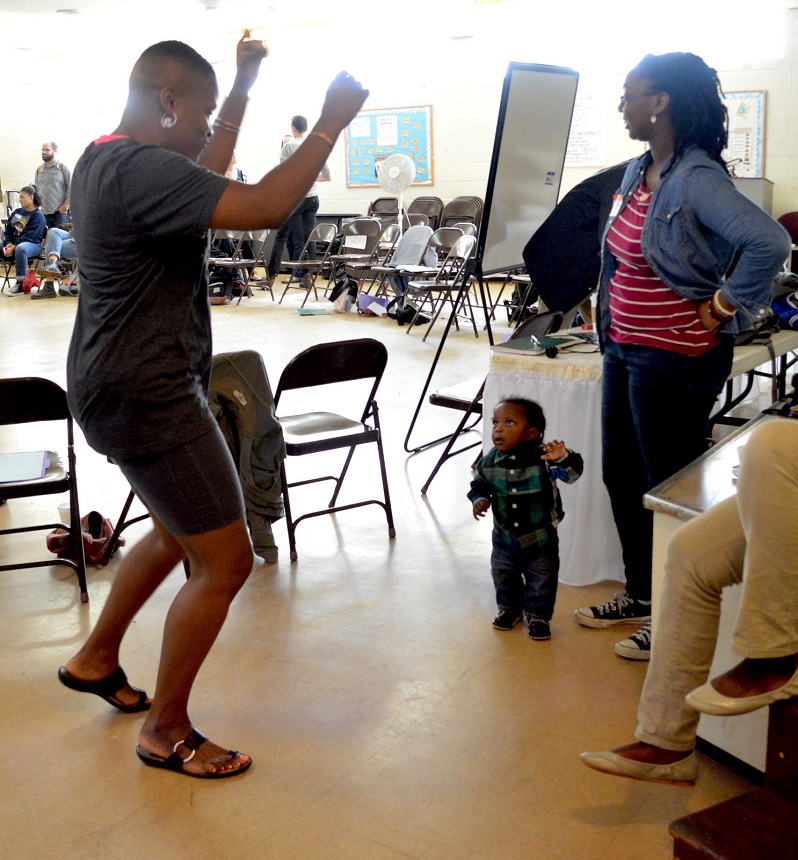
Related Content
Igniting the spark of justice: An interview with Dustin Washington